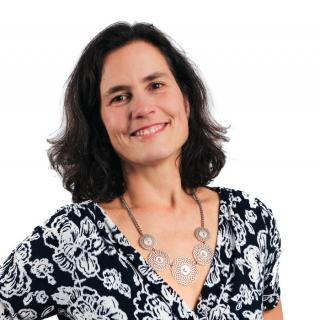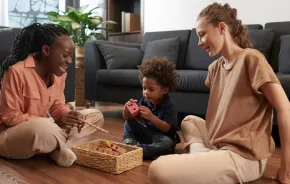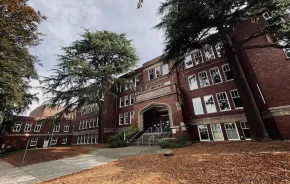
Pam Christensen and her husband were so interested in the family camp experience that they started attending one before they had kids. They chose Cascades Camp and Conference Center, a Christian-oriented camp in the foothills of Mount Rainier. “It was a lot of fun because we could do whatever we wanted,” Christensen jokes.
After the Shoreline couple had their two boys, the family made attending Cascades’ five-day Independence Day family camp an annual tradition. They fish, boat, ride horses and hike as a family; enjoy camp traditions such as Parents Night Out (kids watch a movie; parents eat a relatively elegant meal together); and celebrate camp milestones, such as the year both boys were old enough that the entire family could do a trail ride together, and the year their oldest scaled the 25-foot climbing wall without a hitch.
Now that the boys are older, the family pursues a mix of joint and separate activities. “I know the staff is there with them and they’re safe, so I can go [relax] on a bench and read a book,” says Christensen.
And the combination of quality, unplugged family time with a break from daily chores, she says, is unbeatable — especially the “killer food” cooked by someone else. “It’s a beautiful thing.”
The Christensens probably didn’t know it, but they were on the cutting edge of a growing trend. While family camps have been around as long as summer camps have (wasn’t “Dirty Dancing” set at a family camp of sorts?), in recent years, says former American Camp Association CEO Peg Smith, the biggest growth in camp clientele has been for family camps.
From babies to 90-year-olds
One of the most common types of family camp is a traditional sleepaway camp that schedules several weekends or weeks each season for family sessions.
Families can usually choose from a variety of lodgings (cabins, tents, yurts, lodges; shared bathroom or private) and meal options (make your own, eat family style with other campers).
There is a wide range of activities: sports, canoeing, horseback riding, zip lines, crafts, camp games, songs, skits. Unlike summer camp, participation in activities is often optional. (Yes, you can lounge while others tear through camp activities.)
While sleepover camps usually don’t accept kids until they’re in the first or second grade, families can typically bring children of any age to family camps.
“We’ve had babies just a couple of months old and 90-year-old grandmas,” says Tim McElravy, camp services director for Lake Wenatchee YMCA Camp, which has run several weekend family camps. He has seen interest in family camps increase; his staff has responded by adding sessions and activities, from theme nights to pirate treasure hunts to fishing derbies on the lake.
Adventure awaits! Summer is around the corner. Get a jump on planning with ParentMap's free regional Camp Fair events. Explore hundreds of Puget Sound activities and enrichment for all ages.
Learn more
Why the interest? Families with younger kids are often looking to test-drive a sleepover camp, and end up coming back year after year as a family. Families with older kids are looking for ways to unplug and reconnect.
And then there’s the cost factor. Compared to other vacations in gorgeous settings with a similar range of activities, family camp is often a bargain.
YMCA Camp du Nord, for example, located on the edge of the stunning Boundary Waters Canoe Area Wilderness in Minnesota. It runs family camps only, and it’s so popular that families have to enter a lottery in the fall to reserve a summer camp spot.
“Who needs five-star hotels when you have a beautiful lake, canoes, kayaks, trails and fun people?” asks Jeanne Cochran, a Minnesota lawyer and mom who has been going to Camp du Nord with her family for eight years.
A camp for every camper
The family camp experience exists in other forms beyond the traditional outdoor camp experience. You can rent a house and attend an event, such as the weeklong Fiddle Tunes Festival at Fort Worden State Park in Port Townsend. Although not described as a family camp, the festival is very family-oriented, with workshops for kids as well as adults, and many children attend year after year (and often quickly outshine the parents with their musical chops).
Some families rent a house together on “campus,” and spend their days in a mix of shared and separate music workshops: such as kid’s fiddle for the kids; mandolin for a mother-son duo; guitar for Dad; fiddle for Mom.
The rewards of the experience include a chance for the adults to learn from the kids. A music festival like Fiddle Tunes includes endless opportunities to “jam” with other attendees, a prospect that’s sure to create lasting memories.
Pam Christensen knows. As her sons grow up, her family treasures their time at Cascades Camp even more. “As the kids get more involved in other things, it’s really great to have this time to do more than touch base at dinner at night,” she says. “Some of the conversations we’ve had at camp have been very funny, and very deep.
“We have friends who still go with their grown kids. ... I hope that’s a tradition we share.”
Find a family campInterested in a traditional outdoor family camp? Use the American Camp Association’s Find a Camp database or ask your peeps. Seattle-area options include Camp Orkila, a YMCA camp on Orcas Island; Camp Indianola; Lake Wenatchee YMCA Camp; two local Girl Scout camps, Camp St. Albans and Camp Robbinswold; and Cascades Camp. The North Cascades Institute runs Family Getaway weekends at its beautiful lodge on Diablo Lake. IslandWood on Bainbridge Island offers similar options. Wolf College offers flexible family camps at Lake Sammamish and Puyallup. Family camps can be a great way to explore a new area. Learn to surf at the Family Vacation Center’s weeklong beachside camp sessions in Santa Barbara, California. Stay in covered wagons by night and learn to ride horses by day at Cheley Colorado Camps near Estes Park, Colorado. Music- and arts-focused camps range from festivals and workshops with activities for kids, like The Kids Track at the American Festival of Fiddle Tunes in Port Townsend, to dedicated family camps, such as Cazadero Performing Arts Family Camp, an offshoot of Cazadero Music Camps that offers two highly popular sessions of arts-focused family camps in California’s Russian River Valley. Or learn a language together. Canoe Island French Camp offers several family camp weekends. There are camps for kids with special needs, medical conditions or differences, such as Camp Sealth family camp and Camp No Limits, which has camps around the U.S. for kids who have lost a limb, and their families. Costs for family camps range widely, beginning at about $120 per adult ($80 per child) for a three-day family camp that includes meals and lodging. And book as early as you can. Family camp sessions can fill up fast. |











